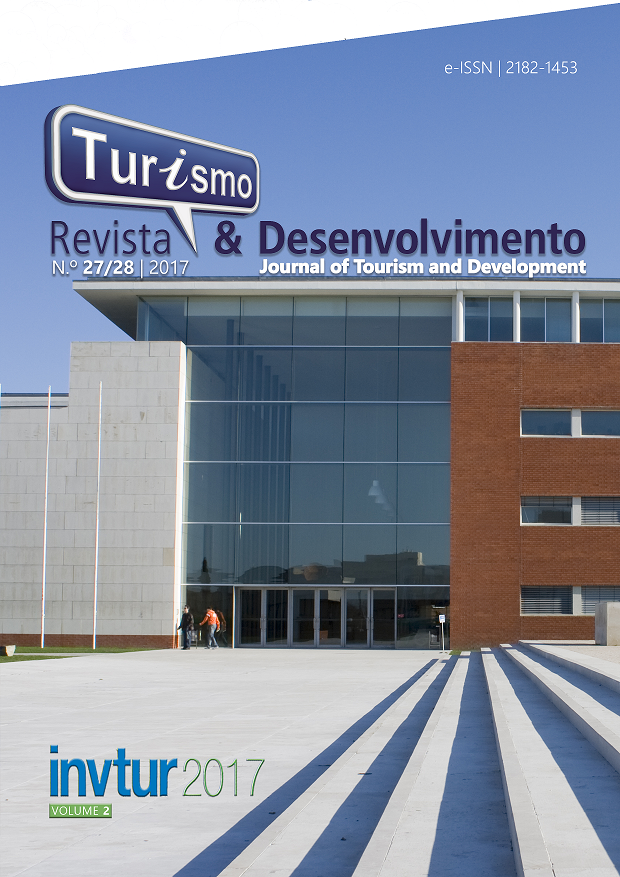Tour guides-educators as heralds of change: Oeiras’ Pombal palace as example
Resumo
O artigo recorda a experiência dos autores como guias certificados e docentes de um instituto superior, considerando as visitas pioneiras realizadas com estudantes de licenciatura ao longo dos anos ao palácio Pombal de Oeiras. Brochu e Merriman (2002) defendem que cada geração de intérpretes enriquece o legado de dos seus predecessores expandindo a ciência e enriquecendo a arte. Pastorelli (2003) acrescenta que um bom contador de histórias deve colocar o seu público em transe, permitindolhes mergulhar na história, enquanto Tilden (1997) enfatiza o lado educativo da interpretação ligada ao significado, o uso de objetos e meios instrutivos. Na verdade, a viagem mental no tempo é a chave para a compreensão dos clientes da identidade evolutiva de um lugar, complementada com a provocação dos sentidos dos visitantes. Uma abordagem teórica sobre interpretação abre este documento. Seguem-se a apresentação histórica, a abordagem das principais áreas do local recinto, a menção de lacunas e sugestões para a futura visitação do palácio e dos jardins. A proposição empírica inclui as referências consultadas para sua elaboração. A teoria científica aliada à prática profissional e a percepção dos fatores humanos subjacentes à educação dos estudantes de Informação Turística são fundamentais para co-criar o futuro do Turismo.





